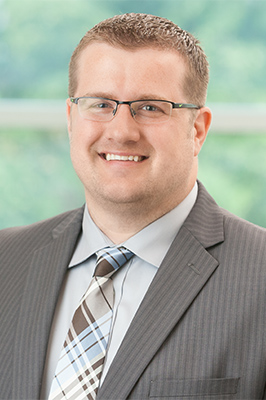Early sports specialization raises injury risk


Across the country, interest in youth sports continues to grow as both young athletes and parents recognize the positive influence sports activities can have. Sometimes, however, that passion pushes athletes into early sports specialization, which can ultimately be detrimental. “Sports specialization is a hot topic in the medical community,” says Matthew Tao, MD, orthopaedic surgeon. “The issue centers on athletes who focus on a single sport at a young age and train year-round.”
The main concern for the sports medicine team at Nebraska Medicine is the increased risk this poses. “Children and adolescents are at risk for a different spectrum of injuries than adults because their bones are still growing,” says Ross Mathiasen, MD, sports medicine specialist. “Using the same muscles and skill sets repeatedly can put too much stress on growing bones and soft tissues.”
Come to our Friday Night Sports Injury Clinic and get a free evaluation of your athlete's injury. The clinic will be held Friday evenings from 9 to 11 p.m., Aug. 24 through Oct. 26, at the Orthopaedics clinic at Lauritzen Outpatient Center. Check in is on level one. No appointment needed. Walk-ins are welcome. For more information about the clinic, call us at 800.922.0000 or visit NebraskaMed.com/Friday-Sports.

Specialists recommend that young athletes should not specialize in one sport until, at the earliest, late adolescence or after high school. “Until then, a child really isn’t physiologically, socially or psychologically ready to focus on one sport,” says Dr. Mathiasen. Multiple studies point to the fact that young athletes engaged in year-round training, decreased age-appropriate play and participating in sports with a high degree of technical skill carry a much higher injury risk. Incorporating month-long breaks at least three times a year from a particular sport is a good rule of thumb.
Additionally, there is a performance component that cannot be ignored. Dr. Mathiasen states, “studies show approximately 80 percent of world-class athletes were multi-sport athletes. And statistically speaking, early specialization is actually associated with a decreased likelihood of achieving an elite level.”
Dr. Tao adds, “both as a medical community and particularly as parents, we must evaluate the goals we have for our kids. Yes, we want them to succeed athletically, but not at the expense of their overall well-being. Sports provide everything from socialization to teamwork to enhancing grit and work ethic. Ultimately, we hope that our kids’ athletic endeavors serve as a springboard to becoming well-rounded individuals who embrace an active lifestyle.”
So from our specialists – encourage your kids to be healthy, stay fit and remember to have fun!




